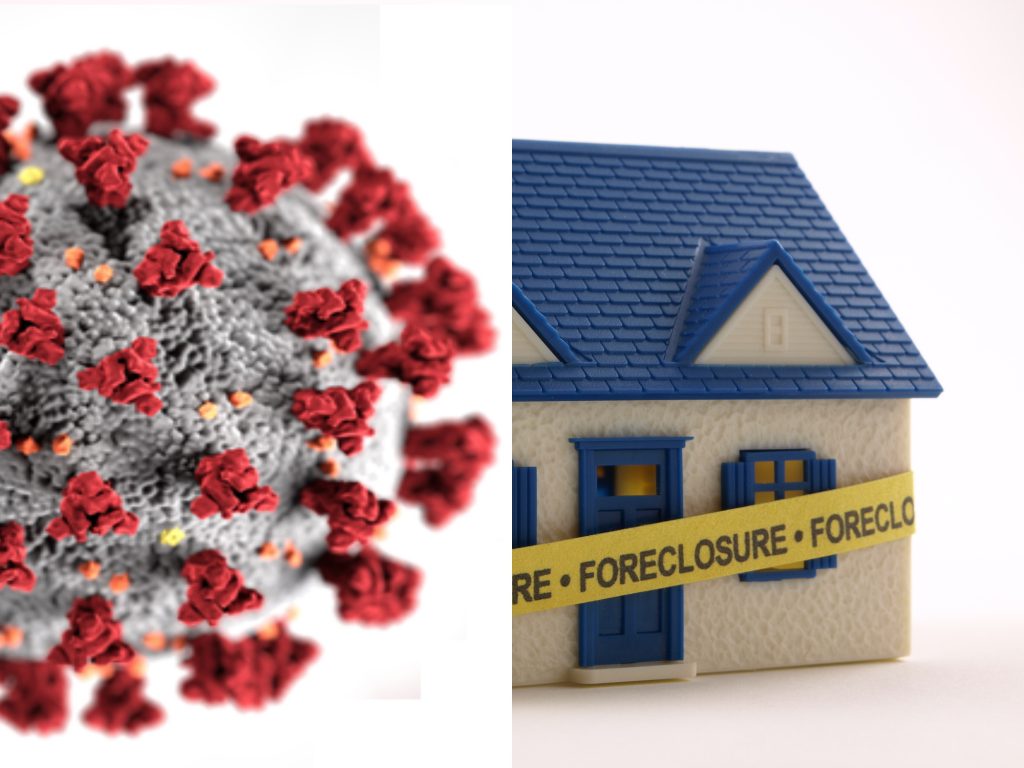The raging coronavirus epidemic has prompted the suspension of foreclosures in DC, Virginia and Maryland. Pursuant to the Coronavirus Aid, Relief, and Economic Security Act (the CARES Act), servicers of federally-backed mortgage loans may not initiate or execute any judicial or nonjudicial foreclosure-related eviction or foreclosure sale. Two-thirds of residential mortgages in the United States are federally backed.

Mortgage forbearance
Under CARES, a borrower may request mortgage forbearance for up to 180 days. Lenders shall extend this period an additional 180 days at the request of the borrower. During the forbearance period, no fees, penalties, or interest beyond the amounts scheduled shall accrue to borrowers.
Lenders, servicers step up
In addition, the Federal Housing Administration put an immediate 60-day moratorium on foreclosures and evictions for single-family homeowners unable to pay their FHA-backed mortgages. Fannie Mae and Freddie Mac will also establish a forbearance program allowing borrowers to skip their mortgage payments for up to 12 months.
The government is essentially offering a year-long payment holiday so those who lose their jobs from COVID-19 can stay in their homes without worrying about mortgage payments or foreclosure.
Jaret Seiberg,
Cowen Washington Research Group
Servicers have lobbied for government assistance (i.e., access to liquidity) to fund forbearance programs. The CARES Act has provided that liquidity, as well as a pleasant surprise tax break for the 1 percent. Of course.
State actions
On March 30, 2020, Virginia governor Ralph Northam signed a “stay-at-home” executive order limiting residents from venturing outside their homes with the exceptions to get food and supplies, receive medical care, go to work, or to get fresh air or exercise. This is essentially a moratorium on foreclosure auctions. The executive order runs through June 10.
On March 18, 2020, the Maryland Court of Appeals entered an administrative order immediately halting both residential foreclosures and pending scheduled evictions. Additionally, new residential foreclosures and foreclosures of right to redeem after tax sales “shall be stayed upon filing.” On April 3, 2020, Maryland Governor Larry Hogan issued an emergency order prohibiting for 90 days (a) lenders from initiating foreclosures and (b) building owners from evicting commercial and industrial tenants.
On March 18, 2020, the District of Columbia stayed all evictions of tenants and foreclosed homeowners until May 15, 2020. By court order, D.C. also continued all hearings on small claims, debt collection, mortgage foreclosure, and housing court matters. On March 29, 2020, D.C. was approved for a major disaster declaration, which will open up more funding for emergency services for those affected by coronavirus.
If you can’t pay your mortgage due to coronavirus
Contact your lender immediately if you won’t be able to make your April mortgage payment. Find out what kind of relief they are offering under CARES, and whether there are any more advantageous internal programs available to you. Neither the coronavirus pandemic nor the moratorium relieve you of your duty to stay on top of your finances. Be proactive and chart a path forward.
